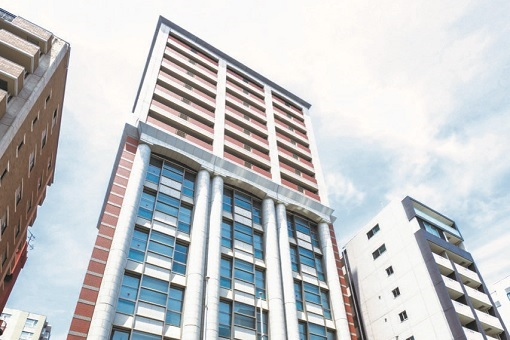Important Dates |
|
| Full paper submission | September 5, 2022 |
| Acceptance notification | November 1, 2022 |
| Camera-ready due | November 19, 2022 |
| Conference dates | December 19-21, 2022 |




Ubiquitous virtual reality environments such as Metaverse have been described as the future mobile Internet, alluding to their expected profound impact on the way how information is retrieved, processed, rendered, and consumed. While detailed designs are still emerging, early visions such Keeichi Matsuda’s Hyper-Reality project have already outlined usage models and expectations on connectivity and data availability to enable rich interactions with the physical world and blending it with dynamically computed artefacts.
Metaverse systems will challenge traditional client-server-inspired web models, centralized security trust anchors and server-style distributed computing. We propose the Microverse – a decentralized AR/VR network based on dynamic interactions between humans, the phyiscal world, and computing processes in an edge-to-cloud continuum. This talk will outline the associated challenges of traditional Metaverse systems and our new Microverse concept, review recent work in distributed computing and suggest some approaches for evolving networking and computing to enable Microverse – not as a dystopian vision but as an opportunity for societies and their citizens.Chair: Simone Ferlin
Chair: Gareth Tyson
Chair: Adisorn Lertsinsrubtavee
Chair: Simone Ferlin
Chair: Gareth Tyson
Submissions must be original, unpublished work, and not have been submitted to another conference or journal for publication. Paper length cannot exceed 8 pages in the 10pts ACM SIGCOMM format (without references). Please do not mention the authors in the paper for blind review. AINTEC 2022 proceedings will be included in the ACM Digital Library.
Word and Latex templates for the submission can be found here (search for "2. The Workflow and Templates"): ACM Authors Submissions
Submission of a paper implies that should the paper be accepted for publication in the conference proceedings, at least one of the authors will register and present the paper in the conference. Authors of accepted papers must pay for their registration on or before the camera-ready version deadline.
Presentations and ParticipationAINTEC 2022 will be a hybrid event consisting of both on-site attendence and presentations, as well as remote virtual participation for non-presenter attendees who are unable to travel. At least one author of each accepted paper/poster is expected to present the work on-site. Remote presentation may be acceptable only for exceptional circumstances related to Covid-19 only. Please contact aintec2022@interlab.ait.ac.th to request an exception.
Double-blind requirements
Important Dates |
|
| Full paper submission | September 5, 2022 |
| Acceptance notification | November 1, 2022 |
| Camera-ready due | November 19, 2022 |
| Conference dates | December 19-21, 2022 |
The conference proceedings will be published by the ACM Digital Library. The deadline for completing the submission in The ACM Production System (TAPS) is November 19, 2022 (This is equivalent to the traditional Camera ready submission) . Please try to complete it earlier if possible.
Proceedings templates and Guide: http://www.acm.org/publications/article-templates/proceedings-template.html
The copyright form has been sent to the main authors -
ACM encouraged the use of TAPS which generates both accessibility-friendly PDF and responsive HTML5 versions to ensure the widest possible readership.
Note: Authors will submit their source files in single-column format for production processing. TAPS will produce a 2-column formatted PDF and a responsive, single-column HTML5 file.
The 17th Asian Internet Engineering Conference (AINTEC), in cooperation with ACM SIGCOMM, welcomes students and young researchers to submit posters showing promising early works on novel Internet technologies and applications. The conference provides an international venue for researchers and practitioners from both industry and academia. The poster session is meant to introduce new or ongoing work and provide opportunities for authors to interact directly with leading experts and researchers at the conference.
Topics of Interest:We welcome all topics that align with the AINTEC main conference topics of interest.
Submission Info:Poster abstracts should report on research work where at least some preliminary results are available, but they need not necessarily describe completed work. Poster submissions should be no more than 2 pages and must follow the guidelines mentioned in AINTEC main conference (https://interlab.ait.ac.th/aintec2022/). Authors of accepted posters will be required to produce a high-quality final poster version (A1 size) for presenting at the conference.
Submit a poster paper to https://cfp.wide.ad.jp/conferences/aintec2022poster/
Important Dates (for Posters only!) |
|
| Submission deadline | November 7 2022 |
| Acceptance notification | November 16 2022 |
Posters will be exhibited in the break areas throughout the conference. The authors will give a 3 minute lightning talk and present the poster and/or demonstrate their work during the poster session at the conference. In order to protect the author's right to submit their work for publication as a full paper elsewhere, we will not be publishing a poster abstract with the proceedings. This will hopefully prevent future reviewers from claiming that your work is already published. However, we will include the poster title and author names on the conference webpage.
For further information please contact: poster-aintec@interlab.ait.ac.th
Application form can be found at Student Travel Grant Application
The conference venue is located on Eikei University campus at the center of Hiroshima, just a 10-minute walk from Hiroshima Station. Shinkansen is a convenient option to travel to Hiroshima from major cities inside Japan. Limited domestic flights are also available from some cities. More details about access to Hiroshima is available here https://www.eikei.ac.jp/english/access/.

The list below are accommodation options near the conference venue or you can use this Map.
Budget HotelsTo facilitate your international arrival into Japan, please use the Visit Japan Web. https://vjw-lp.digital.go.jp/en/ This service is for both international travelers and Japanese citizens and this can be used for Quarantine, Immigration, and Customs declaration procedures. We recommend that you upload your information in advance. In addition, travel insurance with healthcare/COVID-19 coverage is highly recommended.
International travel to Hiroshima:We recommend these three routes (by order of preference).
Route I:If there is a direct flight to Fukuoka International Airport, we recommend flying to Fukuoka, then take the bus to Hakata (Fukuoka) Station to ride the bullet train to Hiroshima. More details on this route are here: Fukuoka Airport International Terminal{Nishitetsu Bus Munakata} - Hiroshima
Route II:If there are no flights to Fukuoka, you should choose Tokyo Haneda Airport. There are 9 connecting flights to Hiroshima a day by ANA and 8 flights by JAL. Once at Hiroshima Airport, you can take a bus for 45 min from Hiroshima Airport to Hiroshima Station. More details on this route are here: Hiroshima Station Shinkansen Gate <-> Hiroshima Airport
Flying into Haneda and then transfering to Tokyo Station to take the bullet train to Hiroshima is not recommended.
Route III:You may also fly to Kansai International Airport near the Osaka area. You can take an express train Haruka from Kansai Airport to Shin-Osaka station and transfer to a bullet train to Hiroshima. More details on this route are here: Kansai-Airport - Hiroshima
Authors who have an accepted paper(s) must register for the "Author Registration" by November 19, 2022. At least one author of each accepted paper/poster is expected to present the work on-site. Remote presentation may be acceptable only for exceptional circumstances related to Covid-19 only. Please contact aintec2022@interlab.ait.ac.th to request an exception. Register Here.
Registration Fee:
| Type | Cost in USD (via Credit Card) |
Cost in JPY (via Domestic Japanese bank transfer) |
|---|---|---|
| Author | US$500 | JP¥67,000 |
| Regular | US$500 | JP¥67,000 |
| Student | US$200 | JP¥25,000 |
| Remote (non-author) | US$50 | JP¥6,500 |
If you have any questions/requirements about this domestic transfer, please kindly contact aintec2022@eikei.ac.jp

We are pleased to announce that the 17th Asian Internet Engineering Conference (AINTEC), in cooperation with ACM SIGCOMM, was a great success, with attendees participating in three full days of informative and engaging presentations. The proceedings of the conference are available at https://dl.acm.org/doi/proceedings/10.1145/3570748
It is our pleasure to announce the winners of the Best Paper Award, Best Poster Award, and Honorable Mentions for the Poster at this year's conference. These outstanding contributions represent the highest quality of research, and we are proud to honor the authors and their work.


Tien-Huy Pham, VNUHCM-UIT; Quoc-Huy Vo, VNUHCM-UIT; Ha Dao, NII; Kensuke Fukuda, NII/Sokendai
Kenichi Yasukata, IIJ Research Laboratory
Photos from the conference can be accessed on the protected page